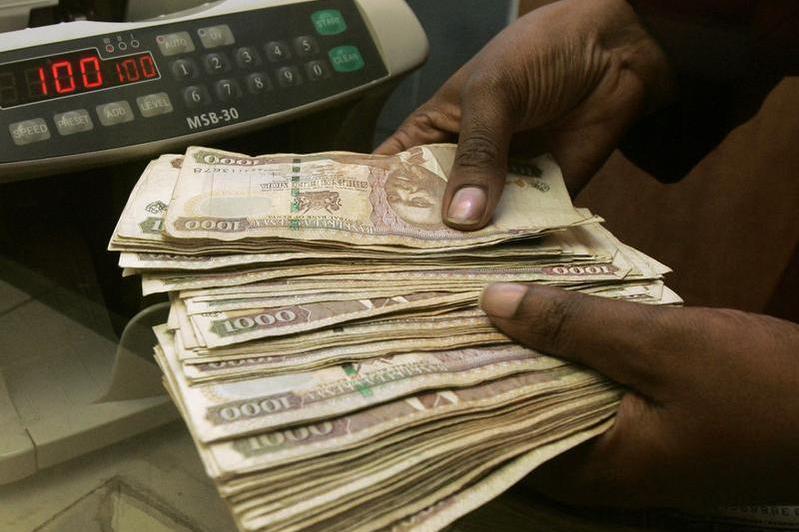A currency dealer counts Kenya shillings at a money exchange counter in Nairobi October 23, 2008. The Kenya shilling breached the important 80.00 level on Thursday reaching a near four-year low, despite assurances by the central bank, due to demand for dollars. At 0800 GMT, commercial banks traded the unit at 80.10/20 against the dollar compared with 79.40/50 at the close of trade on Wednesday. REUTERS/Antony Njuguna
Antony Njuguna Kenyan top retail banks are struggling to navigate the rough terrain in the war-ravaged South Sudan with Co-operative bank falling to an accumulated loss of Ksh3.29 billion ($28.85 million) in the last eight years of operation.
A review of the audited financial statements for KCB, Equity and Co-operative bank show that the latter has made losses amounting to about $28.85 million from the year 2014 to 2021, translating to a loss of Ksh411.78 million ($3.61 million) per annum.
The only profit for the lender which started operations in South Sudan in September 2013 came in the year 2015 at Ksh849.72 million ($7.45 million).
The lender exported its cooperative banking model in South Sudan by investing Ksh2.72 billion ($23.85 million) for a 51 percent shareholding in a joint venture with the Government of South Sudan.
The government of South Sudan holds 49 percent shareholding in the bank on behalf of the country’s cooperative moment.
Last year, Co-op Bank extended this joint venture by three years, arguing that the transfer of the minority stake to the South Sudanese Cooperative movement has been delayed by economic and political challenges in the country.
The civil war, which started in 2013 and ended in 2020, led to a massive write-down of assets, loss of revenue and hyperinflation, which resulted in banks reporting monetary losses due to reassessment of assets and liabilities.
Equity Group Holdings (EGH) Ltd recorded an estimated Ksh1.86 billion($16.31 million) in net profit during the period under review translating to about Ksh206.77 million ($1.81 million) per annum, with losses coming in the year 2016 and 2021 at Ksh660 million ($5.78 million) and Ksh200 million($1.75 million) respectively.
Oil export droughtOn the other hand, KCB’s subsidiary in South Sudan returned a total profit after tax of Ksh6.03 billion ($52.89 million) during the same period, translating to Ksh754.12 million ($6.61 million) per annum.
The seven years of civil war significantly affected the South Sudanese economy primarily because of the collapse in oil production in areas affected by the war.
For instance, South Sudan produced about 500,000 barrels […]
